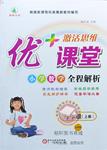题目内容
--- Do remember to take this medicine three times a day with warm boiled water.
--- .
A.Heard it B.Made it C.Got it D.Taken it
C

 激活思维优加课堂系列答案
激活思维优加课堂系列答案 活力试卷系列答案
活力试卷系列答案 课课优能力培优100分系列答案
课课优能力培优100分系列答案HOW would you like to step into the world of other people’s dreams? That’s just what Dom Cobb (Leonardo DiCapr io) does. His work is to steal secrets from people when they are asleep and dreaming. He has an even rarer ability: He can plant an idea in someone’s sleeping mind, and watch it grow and take root in reality. This ability is called inception.
io) does. His work is to steal secrets from people when they are asleep and dreaming. He has an even rarer ability: He can plant an idea in someone’s sleeping mind, and watch it grow and take root in reality. This ability is called inception.
The movie Inception (《盗梦空间》) was on show in Chinese cinemas not long ago. It is imaginative, of course. The movie leads one to wonder just how much we know about dreams. For years, scientists and researchers have been trying to solve sleep’s greatest mystery.
Is it possible to enter someone’s dreaming mind? In the movie, DiCaprio uses a drug and a dream machine to put a scenario (某一特定情节) into someone’s sleeping mind. He then goes to sleep himself, connected to the machine, and enters the other person’s dream.
In real life, there is a machine that can read someone’s mind. A brain scanner takes pictures of brain activity, and then the software recreates images of what the person was looking at.
Researchers say it may be possible one day to record someone’s dream – without the danger (or the fun) of actually sharing that dream.
What’s a dream, anyway? A dream is a group of images and sounds our brain creates when we’re sleeping. In the 1950s, researchers discovered a sleeping condition that happened around every 90 to 120 minutes during sleep: rapid eye movement, or REM. During this period you’re fast asleep, yet your eyes move around quickly under your eyelids (眼皮) and your brain is nearly as active as during the day. That’s when most dreams happen.
120 minutes during sleep: rapid eye movement, or REM. During this period you’re fast asleep, yet your eyes move around quickly under your eyelids (眼皮) and your brain is nearly as active as during the day. That’s when most dreams happen.
What do dreams mean? Dreams are not always filled with meaning. Sometimes dreams are just your mind playing with thoughts and images from your life, or things you may have read or seen on TV. But at other times, dreams show things that you want to achieve in real life, or things that cause you trouble or stress.
【小题1】The movie Inception is mentioned at the beginning of the article to ______.
| A.encourage readers to watch the movie |
| B.tell readers about people with special dreaming abilities |
| C.inform readers about the science of dreams |
| D.warn reader about the threat of dream stealers |
| A.It records dreams. |
| B.It uses a special drug that causes no pain. |
| C.It finds out what dreams mean. |
| D.It takes pictures of brain activity and recreates images. |
| A.Most dreams occur in REM sleep. |
| B.Over the last ten years scientists have solved the mystery of REM sleep. |
| C.People always remember what they have dreamed in a REM sleep. |
| D.People can have REM sleep all night. |
| A.dreams tell us a lot about a person’s character |
| B.dreams are connected to real life |
| C.dreams are useful and help keep our brains active |
| D.dreams are usually about meaningful things |
Do you wake up every day feeling too tired, or even upset? If so, then a new alarm clock could be just for you.
The clock, called SteepSmart, measures your sleep cycle, and waits ____(36) you to be in your lightest phase of sleep ____(37) rousing you.Its makers say that should ______(38) you wake up feeling refreshed every morning.As you sleep you pass____(39) a sequence of sleep states---light sleep, deep sleep and REM(rapid eye movement) sleep---that ____(40) approximately every 90 minutes.The point in that cycle at which you wake can ____(41) how you feel later, and may ____(42) have a greater impact than how much or little you have slept.Being roused during a light phase ____(43) you are more likely to wake up energetic.
SleepSmart ____(44) the distinct pattern of brain waves _____(45) during each phase of sleep, via a headband equipped _____(46) electrodes and a microprocessor.This measures the electrical activity of the wearer’s brain, in much the ____(47) way as some machines used for medical and research ____(48), and communicates wirelessly with a clock unit near the bed.You ____(49) the clock with the latest time at _____(50) you want to be wakened, and it _____(51) duly wakes you during the last light sleep phase before that.
The _____(52) was invented by a group of students at Brown University in Rhode Island ____(53) a friend complained of waking up tired and performing poorly on a test.“_____(54) sleep-deprived people ourselves, we started thinking of _____(55) to do about it.” Says Eric Shashoua, a recent college graduate and now chief executive officer of Axon Sleep Research Laboratories, a company created by students to develop their idea.
|
1.A .beside 2.A.upon 3.A.ensure 4.A.through 5.A.reveals 6.A.effect 7.A.already 8.A.means 9.A.removes 10.A.proceeded 11.A.by 12.A.familiar 13.A.findings 14.A.persevere 15.A.where 16.A.then 17.A.claim 18.A.once 19.A.Besides 20.A.what |
B.near B.before B.assure B.into B.reverses B.affect B.ever B.marks B.relieves B.produced B.of B.similar B.prospects B.program B.this B.also B.conclusion B.after B.Despite B.how |
C.for C.towards C.require C.about C.resumes C.reflect C.never C.says C.records C.pronounced C.with C.identical C.proposals C.prohibit C.which C.almost C.concept C.since C.To D.whether |
D.around D.till D.request D.on D.repeats D.perfect D.even D.dictates D.recalls D.progressed D.over D.same D.purposes D.plan D.that D.yet D.explanation D.while D.As D.when |